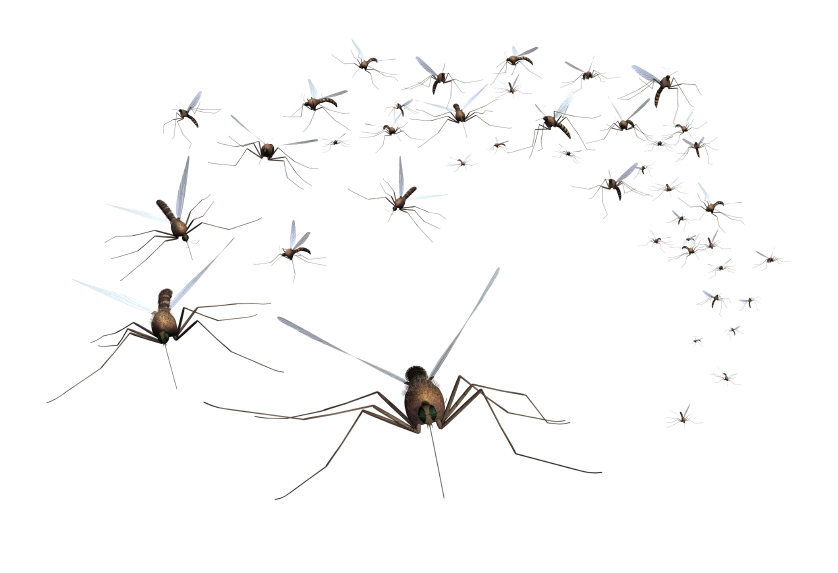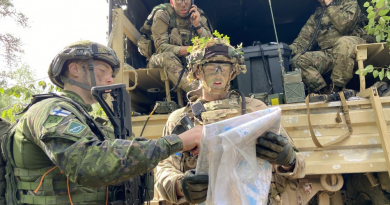Climate change could fuel increase in mosquito-borne viruses in Canada’s Northwest Territories, say officials

California serogroup viruses found in Canada’s Northwest Territories (N.W.T.) mosquitoes in 2020
As the climate changes, the risk of contracting a serious virus from a mosquito bite could increase in the N.W.T., according to the territory’s health officials.
Late last month, Chief Public Health Officer Dr. Kami Kandola warned health care professionals that the territory has detected California serogroup viruses — a class of various mosquito-borne viruses — in N.W.T. mosquitoes.
According to the government’s advisory, there are 17 California serogroup viruses distributed across the globe. Three of those are well-known in North America, including the Jamestown Canyon virus, La Crosse virus and snowshoe hare virus.
The N.W.T. department of environment and natural resources has been testing for the viruses in mosquitoes since 2018, according to Dr. Naima Jutha, N.W.T.’s wildlife veterinarian and chief veterinary officer.
The program primarily tests for West Nile Virus — which has never received a positive result — and added California serogroup viruses to the list when cases were detected in other parts of the country.
“We haven’t found a positive case until this past year, the 2020 batch of samples, that we did find some positives, which was interesting,” said Jutha.
Jutha says of the 92 pools of mosquitoes tested for the viruses, 30 pools had at least one positive mosquito individual in them.
No human cases this year
In recent years, there has been one confirmed diagnosis of meningoencephalitis — a severe neurological condition — caused by the snowshoe hare virus in the N.W.T.
Jutha says no human cases of the California serogroup viruses have been reported to the Public Health Agency of Canada this year.
“So that’s great. We’ll continue to monitor this and try and better characterize how much of it is out there,” she said.
According to the Public Health Agency of Canada’s yearly reports, there were 19 reported human cases of the serogroup viruses across Canada in 2019.
No human cases were reported in 2020 or 2021.
The Office of the Chief Public Health Officer says the risk of getting the viruses is low and those who are infected typically don’t develop symptoms. However, in rare cases, the viruses can cause severe problems, such as febrile illnesses or neurological disease.
Climate change is a factor
Jutha says she wouldn’t characterize this as a major concern, especially considering the virus has been circulating in the southern provinces as well.
“It [moreso] tells us, okay, yes, it’s here, it’s circulating,” she said. “This is something we can continue to keep an eye on and try and get some more details moving forward.”
The government’s advisory to health care professionals say infections of the viruses could increase due to “climate change and resulting changes to animal reservoirs, the physical environment, and mosquito vectors.”
Jutha also says the California serogroup viruses can be maintained in wild animals, and she wonders if human travel could influence the increase its presence in the North.
“This definitely gives us something to look into,” she said.
Moving forward, Jutha will continue monitoring and testing at their mosquito trap stations, while working closely with public health.
Related stories from around the North:
Canada: Arctic’s Last Ice Area losing twice as much ice compared to rest of region: Study, CBC News
Finland: Sami, environmental groups weigh in on Finland’s Climate Act reform, Yle News
Greenland: Tipping points: can a leaked report tip the scales to climate action? Blog by Irene Quaile
Norway: Shipping, climate & business opportunities in the North: Q&A with the Arctic Economic Council, Eye on the Arctic
Russia: Record-warm Arctic summer fatal to wild reindeer in Russia, say environmentalists, The Independent Barents Observer
Sweden: Sweden’s wildfire season later than usual, Radio Sweden



